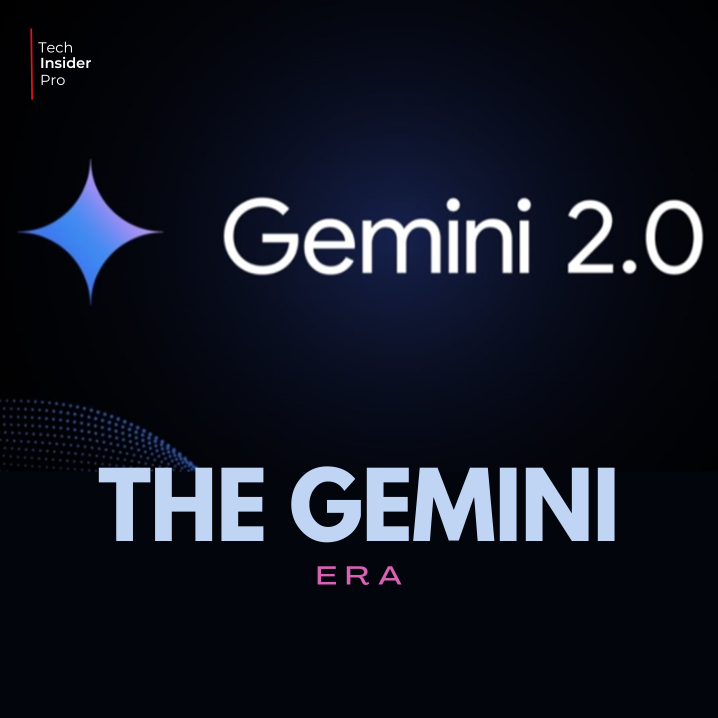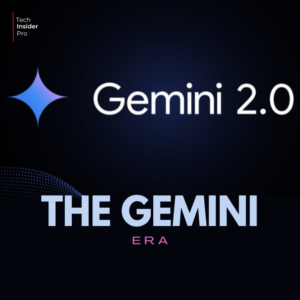
Artificial intelligence (AI) is a key driver of innovation across industries in a time of fast technological growth. Google, a longtime pioneer in AI development and use, unveiled Google Gemini 2.0, its most recent innovation. By improving machine learning and user experiences, this new AI paradigm, which is suited for the autonomous era, promises to completely transform the way we interact with digital surroundings.
Background: Google’s AI Models’ Development
Each of the major turning points in Google’s AI and machine learning journey has pushed the limits of what technology is capable of. The transition to Gemini 2.0 has been both inventive and significant, starting with the early days of basic search engines and ending with the launch of AI-powered services like Google Assistant. Better understanding user intent and delivering more pertinent, context-aware responses have been the goals of every iteration of Google’s AI work.
Google Gemini 2.0’s unveiling
The result of years of AI and machine learning research and development is Google Gemini 2.0. A key component of Google’s plan for an autonomous future, Gemini 2.0 is an advanced AI model that can be easily integrated into a variety of applications. In addition to enhancing current technologies, this model adds new features that improve the way systems communicate with environmental data and human interaction.
Google Gemini 2.0 in Comparison to Earlier Iterations
In contrast to its predecessors, Gemini 2.0 provides significantly higher processing accuracy and efficiency for complicated data sets. In contrast to Google’s previous AI models, including the original Gemini, Gemini 2.0 has sophisticated neural network algorithms that facilitate quicker decision-making and deeper learning. This section will emphasize the technological advancements made by contrasting Gemini 2.0 with its predecessors in terms of response times, error rates, and processing of complex queries.
The Google Gemini 2.0 Technology
Advanced machine learning algorithms that can do natural language processing, pattern identification, and predictive analytics at previously unheard-of scales are at the heart of Gemini 2.0. With the help of these technologies, Gemini 2.0 is able to comprehend and predict user demands in a manner that closely resembles human cognitive processes, making the user experience more interactive and intuitive. This in-depth examination of the technical details will show how the AI architecture of Gemini 2.0 is set up to facilitate independent operations on several platforms.
Innovations in User Experience and Interface
Gemini 2.0’s improved AI capabilities greatly improve user interactions. This section would go over particular case studies that demonstrate how Gemini 2.0 has been applied to enhance user pleasure, engagement, and general digital interaction. User-centric performance indicators and early adopter feedback may demonstrate the usefulness of this cutting-edge AI approach.
Effects on Digital Marketing and SEO
Google Gemini 2.0’s release has significant ramifications for digital marketing and SEO as well. Gemini 2.0 transforms search engine rankings and content optimization with its sophisticated comprehension of context and user intent. More than ever, marketers must modify their approaches to give relevancy and user engagement first priority. This section of the article would offer SEO experts practical guidance on how to take advantage of Gemini 2.0’s capabilities.
Gemini 2.0’s Security and Privacy Features
Gemini 2.0 includes improved security procedures and privacy protections in a time when data security and privacy are crucial. This section would contrast Gemini 2.0’s security features with those of previous models, highlighting improvements in data encryption, safe data storage, and moral AI application that shield user data from new online dangers.
Obstacles and Restrictions
Even with its improvements, Gemini 2.0 still has to deal with issues like AI biases and making sure AI is used ethically. This section of the paper would tackle these issues directly, going over Google’s tactics to reduce possible hazards and guarantee that Gemini 2.0 functions within moral bounds and produces objective, equitable outcomes.
Google’s Role in the Future of AI
Google Gemini 2.0 lays the groundwork for next advancements in artificial intelligence. Taking into account trends like AI in the Internet of Things, driverless cars, and increasingly advanced personal assistants, this final part would provide predictions on possible future improvements and new paths for Google’s AI efforts.
In conclusion
Google Gemini 2.0 is a significant advancement in artificial intelligence that pushes the boundaries of what is feasible in the autonomous era. Gemini 2.0 improves existing applications and creates new opportunities for future advancements by blending cutting-edge AI capabilities into commonplace technology. The potential for smarter, more intuitive technology appears to be growing as we continue to investigate the potential of this potent AI paradigm.






